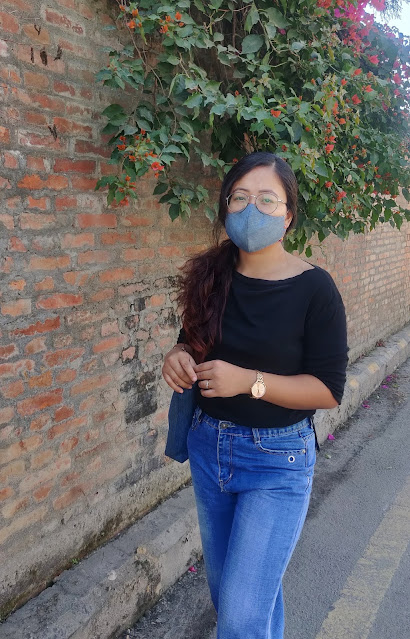Some ideas never leave your heart — no matter how much time passes. For me, that idea was upcycling.
During my college days back in 2014, while others dreamed of luxury labels and fashion trends, I found myself fascinated by Sustainability, waste, and repurposing. Not in a negative way — but in the potential it held. I loved taking old clothes, granny's vintage saris, scrap fabrics, or worn-out jeans and transforming them into something meaningful, something beautiful.
Back then, it was just a creative escape. This passion and playful experiments would eventually grow into something bigger: a purpose-driven business that not only reflects my values but also encourages a larger community to rethink waste.
From Passion to Purpose: The Birth of Nhu Designs
Years later, that college passion turned into a brand — Nhu Designs, a sustainable fashion and lifestyle brand focused on upcycling textile waste into useful, beautiful, and eco-friendly products. Today, we create a wide range of products, including:
♻️ Upcycled denim bags and laptop sleeves.
🧵 Eco-friendly notebooks made from repurposed pants.👜 Handmade pouches, totes, and accessories
📦 Sustainable corporate gifting options
Why “Nhu”?
“Nhu” means “new” in Newari, my native language — a perfect reflection of our goal to give new life to old materials. But it’s more than that.Nhu also holds deep personal meaning — it’s formed from the initials of my mother, and the brand is dedicated to her and to all mothers who have always practiced sustainability in their own quiet ways. From reusing old sarees into blankets, to storing leftovers in reused containers — moms have always been the original upcyclers.
So, this brand is a tribute to their wisdom, to their resourcefulness, and to their quiet creativity.
How It Started
I began with what I had — leftover fabric cutouts from garment factories, old pants from our swap campaign, and a small team of skilled local seamstresses. Slowly, product by product, we stitched together a vision for a more sustainable future.
Nhu Designs didn’t launch with a big factory or a fancy showroom. It started in small rooms, with big dreams and conscious hands. And it’s still growing — with every repurposed item, with every customer who chooses sustainability, and with every story we tell.
How It’s Going: Achievements So Far
Looking back now, the journey has been incredible. Some proud milestones:
- ♻️ Upcycled over hundreds of kilos of textile waste, saving it from landfills
-
👩🏭 Created consistent work opportunities for women seamstresses who are part of our production team
-
📦 Launched a wide range of upcycled products that people use, love, and gift
-
👚 Organized swap campaigns to collect old jeans and educate people about reuse
🎓Collaborated with colleges to raise awareness about fashion waste among students
🌱 Educated the public on upcycling, reusing, and sustainable living
-
💚Built a growing community of supporters, students, artists, and conscious consumers
🧧 Handled bulk and corporate orders from companies choosing sustainable gifting
🧳 Sold over thousands of handmade sustainable products to eco-conscious customers
Most importantly, we've built something that makes people think — about where their fashion comes from, and where it ends up. And that fashion can be both conscious and creative.
The Heart Behind the Nhu Designs
For me, Nhu is not just a label. It’s my way of turning concern into action. Every product we make is a small protest against fast fashion — and a celebration of mindful living.
The fashion industry is one of the largest polluters in the world. But with small shifts — like reusing, repurposing, and supporting local makers — we can create real change. That’s what Nhu Designs stands for.
Looking Ahead
This is still just the beginning. I dream of growing Nhu into a larger community of change-makers — one that involves more garment factories, local artisans, students, and eco-conscious individuals like you.
This is still the beginning. Our goal is to expand Nhu into a larger community of change-makers — that involves more garment factories, local artisans, students, and eco-conscious individuals under one umbrella. We want to continue creating jobs, reducing waste, and spreading awareness about sustainable fashion in Nepal and beyond.
We want to continue proving that fashion can be beautiful, responsible, sustainable, and circular.
Together, let’s turn waste into worth — and make “new” out of the old.







.jpg)




























